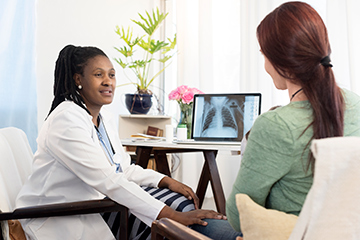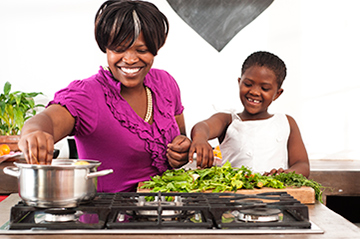Listeriosis: what you need to know
(Western Cape Government)

The National Department of Health has confirmed the outbreak of the foodborne disease called Listeriosis. In the Western Cape, as at 19 December, 84 cases have been confirmed through laboratory testing and five deaths have been recorded. The majority of the cases (90%) is from the Cape Town District, and is not particularly grouped in specific areas.
What is Listeriosis?
Listeriosis is a serious disease that can be treated and prevented. The disease is caused by the bacterium, Listeria monocytogenes. The bacterium is widely distributed in nature and can be found in soil, water and vegetation.
Listeriosis is linked to a wide variety of foods, including dairy products, meat products, vegetables, fruit, and ready-to-eat products. Infection with Listeria usually results in gastroenteritis with diarrhoea and vomiting. Symptoms can range from mild to severe.
Who can get Listeriosis?
Anyone can get Listeriosis. The Department of Health says that the age groups that are most affected are neonates (that means the first 28 days of life) (37%) and the age group between 15 to 49 years (33%). The two groups comprise 70 per cent of all cases according to the Department of Health.
Those at high risk of severe disease are;
- new-borns,
- the elderly,
- immunocompromised individuals,
- pregnant women and their unborn babies,
- and those with underlying conditions such as HIV, diabetes, cancer, chronic liver or kidney disease.
In persons with weak immunity, Listeriosis can lead to meningitis or septicemia. In pregnant women, Listeriosis may results in pregnancy loss (abortion) along with meningitis of their infant.

How does Listeriosis spread?
Listeriosis is usually spread by eating contaminated food products most frequently raw or unpasteurised milk and soft cheeses, but also vegetables, processed foods, ready-to-eat meats and smoked fish products.
The Listeria bacterium can also be transmitted from a pregnant woman to her unborn baby during pregnancy or at the time of birth. Direct contact with the organism can cause skin lesions. Listeria can survive in normal temperatures associated with refrigeration (4°C).
What are the signs and symptoms of Listeriosis?
In the average healthy adult, infection is usually asymptomatic (showing no symptoms).
Symptoms may include:
- fever‚
- muscle pain‚
- restlessness,
- and sometimes vomiting or diarrhoea.
If you or somebody you know are showing symptoms you need to get medical help immediately. Here is a list of clinics in the Western Cape
In at-risk patients‚ the spread of infection to the nervous system can cause meningitis‚ leading to headaches‚ confusion‚ stiff neck‚ loss of balance or convulsions. The presence of bacteria in the blood‚ also known as bacteraemia‚ may also occur.
Pregnant women may present with mild flu-like illness associated with headache, fever and myalgia. However, infections during pregnancy can lead to premature births, infection of the new born with permanent disability, and miscarriage or stillbirth.
How can I prevent Listeriosis?
- Practise good basic hygiene.
- Use only pasteurised dairy products.
- Cook raw food such as beef‚ pork or poultry thoroughly.
- Wash your hands before preparing food‚ eating and after going to the toilet.
- Wash and decontaminate kitchen surfaces and utensils regularly.
- Wash raw vegetables and fruits before eating.

Food safety
- Keep food clean.
- Separate raw and cooked food.
- Cook thoroughly.
- Keep food at safe temperatures.
- Use safe water.
People at high risk of listeriosis should avoid:
- raw or unpasteurised milk‚
- dairy products containing unpasteurised milk‚
- soft cheeses‚
- foods from delicatessen counters (such as prepared salads or cold meats) that have not been heated or reheated adequately,
- and refrigerated pâté.
Where can I find out more information
Go to Listeriosis Outbreak in South Africa for useful information about the disease.
For more information: contact the Outbreak Response Unit or the Centre for Enteric Diseases (for use by healthcare professionals only).
Medical / clinical related queries: NICD Hotline +27 82 883 9920,
Results inquiries: NICD Specimen Receiving Laboratory: +27 11 386 6404.


